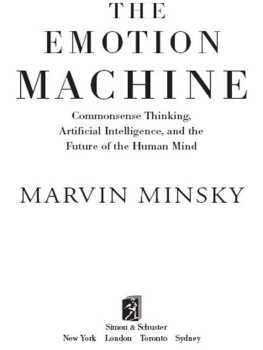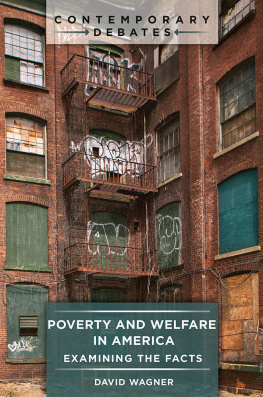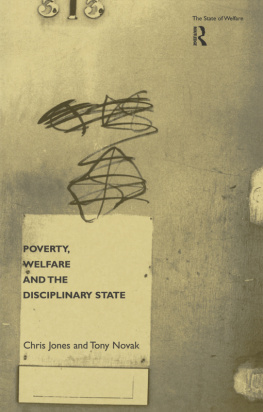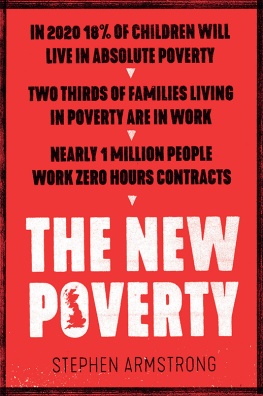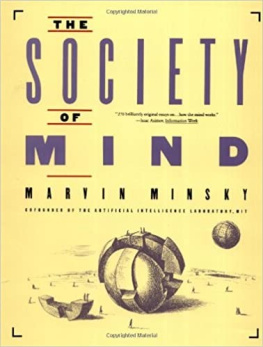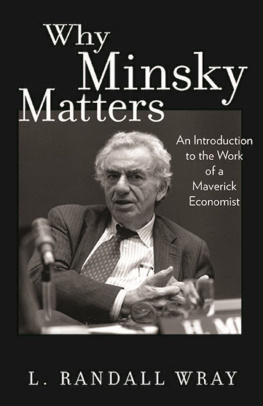Ending Poverty: Jobs, Not Welfare
By Hyman P. Minsky
Published by
Levy Economics Institute of Bard College
Annandale-on-Hudson,N.Y.
The Levy Economics Institute of BardCollege, founded in 1986 through the generous support of Bard College Trustee LeonLevy (19252003), is a nonprofit, nonpartisan, public policy researchorganization. The Institute is independent of any political or otheraffiliation, and encourages diversity of opinion in the examination of economicpolicy issues.
The purpose of the Institutes researchand activities is to enable scholars and leaders in business, labor, andgovernment to work together on problems of common interest. Its findings aredisseminatedvia publications, conferences, seminars, congressionaltestimony, and partnerships with other nonprofitsto a global audience ofpublic officials, private sector executives, academics, and the general public.Through this process of scholarship, analysis, and informed debate, theInstitute generates effective public policy responses to economic problems thatprofoundly influence the quality of life in the United States and abroad.

ISBN 9781936192304
2013 Levy Economics Institute of Bard College. All rightsreserved.
Front Cover: Achille Beltrame, illustration of unemployedworkers rallying in New York City,
La Domenica del Corriere, 1930.
De Agostini Picture Library/A. Dagli Orti/The Bridgeman ArtLibrary
Back Cover: Hyman P. Minsky, Cambridge, Massachusetts, 1948.
Photo: Anne Tolstoi Wallach
Contents
by Dimitri B. Papadimitriou
by L. Randall Wray
The Role of Employment Policy (1965)
Effects of Shifts of Aggregate Demandupon Income Distribution (1968)
Policy and Poverty (1969)
The Macroeconomics of a Negative IncomeTax (1969)
Where the American EconomyandEconomistsWent Wrong (1972)
The Poverty of Economic Policy (1975)
Full Employment and Economic Growth asan Objective of Economic Policy: Some Thoughts on the Limits of Capitalism(1994)
Acknowledgments
This book would not have been possible without the continuedguidance and support of Leonardo Burlamaqui of the Ford Foundation. It wasLeonardos insight to push for the publication of Hyman Minskys work on therelationship of poverty and full employmenta vital theme in Minskyswriting that deserves to be as widely acknowledged as his work on financialinstability.
Special thanks to the teams at the LevyEconomics Institute and the Bard College Publications Office for theirassistance in putting this book together, and to Andrew Sheng for his financialsupport for the digitization of the Minsky Archive.
Research by Stephanie Kelton, witharchival assistance from ric Tymoigne, helped furnish the material adapted forthe introduction to this volume.
Dimitri B. Papadimitriou, L. Randall Wray, and Jan Kregel
Annandale-on-Hudson,N.Y.
Preface
by Dimitri B. Papadimitriou
When the recent financial crash shook the globaleconomyand with it some of the key assumptions underlying a great dealof orthodox economic theorymany turned to the late Hyman P. Minskys writingon financial instability for answers. Now, as financial institutions return tobusiness as usual and the lingering damage to the real economy draws ourattention to the struggles of the unemployed, the working poor, and all thosewho have been left behind by the latest phase of finance-dominated capitalism,another aspect of Minskys work needs to be injected into the conversation.
Minsky concerned himself as much with theissues of poverty and full employment as he did with financial fragility, andjust as his work on financial restructuring and reregulation provides anessential guide for thinking about the limitations of our current approach tofinancial reform, his writing on poverty and employment can shed light on theenduring failure of conventional public policy with respect to the problem ofpoverty. In the interests of such illumination, the present volume gatherstogether a selection of Minskys published and unpublished work, spanningroughly three decades, on poverty and the challenge and promise of fullemployment.
Most of the papers and manuscriptsassembled here were written in the 1960s and early 1970s against the backdropof the War on Poverty. These early writings are not, however, of purelyhistorical interest. Although most of the papers are 40-plus years old, theyhold up well. If anything, they are even more relevant today, as theunemployment rate has trended upward, income has become more unequal, andchronic long-term unemployment has become an even bigger problem.
In the introductionto this volume, L. Randall Wray frames Minskys approach to poverty in thecontext of the latters critique of the policy strategies pursued in theKennedyJohnson War on Poverty and of the economic theories that underlaythose strategies. The astute reader will notice, however, that the present-daymenu of policy options, and the intellectual framework that supports thoseconventional options (and forecloses alternatives), has changed little since1965, when Minsky wrote The Role of Employment Policy, which forms the firstchapter in this collection. The difference today, perhaps, is that poverty hasbeen relegated to the backwoods of the US policy landscape. When the issue doescome up, however, the conversation does not often stray very far from thestandard prescriptions of growth, transfers, and training: a cocktail that, inMinskys view, would be just as ineffective today as it was half a century ago.
Retraining and upgrading workerswithout ensuring that there are enough jobs to go around is akin, as Minskyputs it in chapter 1, to the great error-producing sin ofinfieldersthrowing the ball before you have it. The missing ingredientin the War on Poverty, and in todays policy strategies, is a commitment towhat Minsky called tight full employment, which he associated with anunemployment rate as low as 2.5 percent.
In an unfinished working paper from 1994,Minsky and I wrote that the free market system as it existed at the time couldnot guarantee that a close approximation to full employment would be thenormal condition of the economy (Papadimitriou and Minsky 1994). Nothing hashappened in the last decade to change that verdict. Private markets, left totheir own devices, are not going to get us to sustained full employmentletalone the 2.5 percent unemployment rate that Minsky regarded as central to ameaningful antipoverty campaign. Public action is essential.
The key to sustained, tight fullemployment, in Minskys view, is direct job creation. In sketching out hispreferred policy framework, he turned to the model offered by the publicemployment programs of the New Deal: the Works Progress Administration (WPA),Civilian Conservation Corps (CCC), and National Youth Administration (NYA).Minsky and I noted the irony that the New Deal, which emphasized the virtue ofwork and employment, ended up surviving largely in the form of transfer paymentschemes such as Social Security (Papadimitriou and Minsky 1994). Reaching tightfull employment would require a return to the forgotten side of the New Dealmodel: the creation and expansion of modern equivalents of the WPA/CCC/NYA trioof work-based programs.
In Minskys updated version, thegovernment would step forward as an employer of last resort (ELR) by offeringa job at a minimum wage to anyone willing and able to work. The ELR proposal isfleshed out in various ways throughout the papers collected here, and morerecent work inspired by Minskys ELR has taken the basic idea in furtherdirections, including jobs programs that are administered through the nonprofitand social entrepreneurial sectors (Tcherneva 2012) and programs that focus onthe delivery of social care services (Antonopoulos 2007). But one of theenduring principles that underlies these various ELR or ELR-inspired schemes isa recognition of the role of income from work as a supporting pillar ofindividual dignity. And although the implementation of an ELR program wouldhelp alleviate periodic deep unemployment crises like the one the US economy iscurrently limping through, Minsky also envisaged the ELR as a tool for makingfull employment a permanent feature of the economy. As we wrote in 1994,


